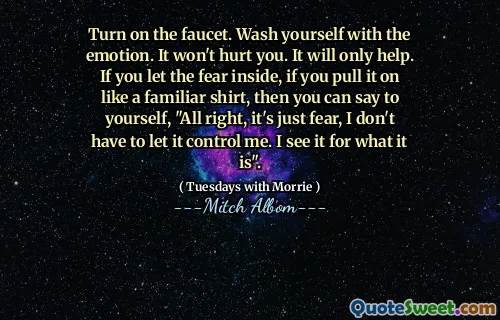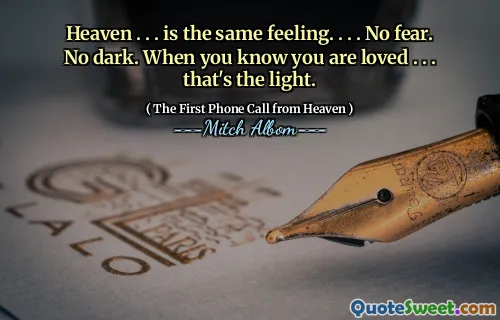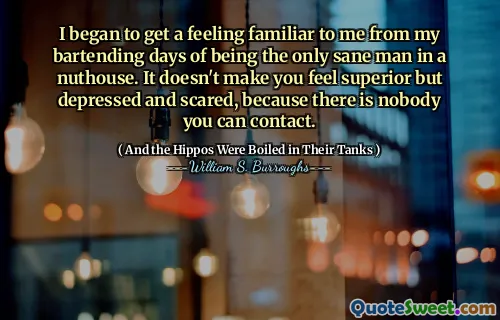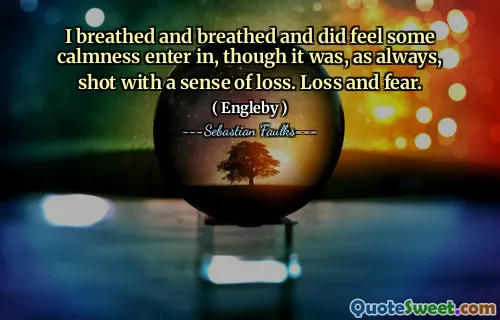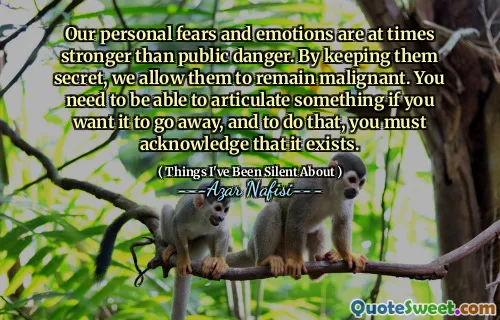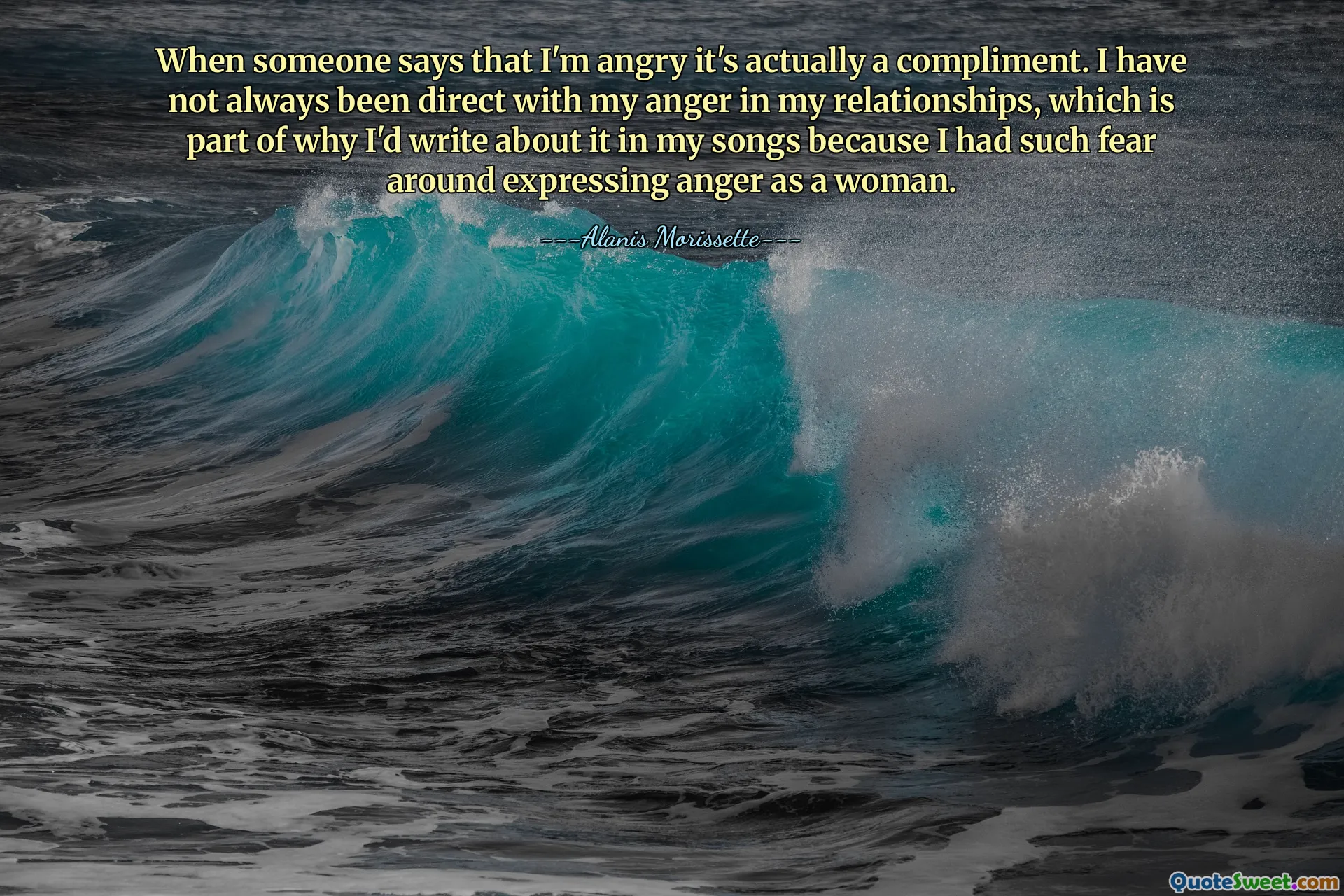
When someone says that I'm angry it's actually a compliment. I have not always been direct with my anger in my relationships, which is part of why I'd write about it in my songs because I had such fear around expressing anger as a woman.
This quote delves into the complex relationship many women have with their emotions, particularly anger, in societal and personal contexts. Societal expectations often condition women to suppress or downplay feelings of anger, framing such emotions as inappropriate or undesirable. This suppression can lead to a sense of shame or fear around openly expressing frustration, which, in turn, influences how women communicate in their relationships. The author suggests that when others interpret their anger as a compliment, it reflects a nuanced understanding of how anger can be disguised or misinterpreted in social interactions. Writing songs about anger becomes an act of catharsis and rebellion, a way to process and confront the barriers to authentic emotional expression. The reluctance to show anger directly stems from deep-rooted fears of being perceived negatively or losing social acceptance, which often stems from ingrained gender roles. Acknowledging and understanding this dynamic is essential for fostering healthier emotional expression and encouraging women to feel empowered to voice their true feelings without fear of judgment. Ultimately, the quote speaks to the importance of self-awareness, resilience, and the transformative power of art as a medium for exploring and challenging societal expectations around gender and emotion.






